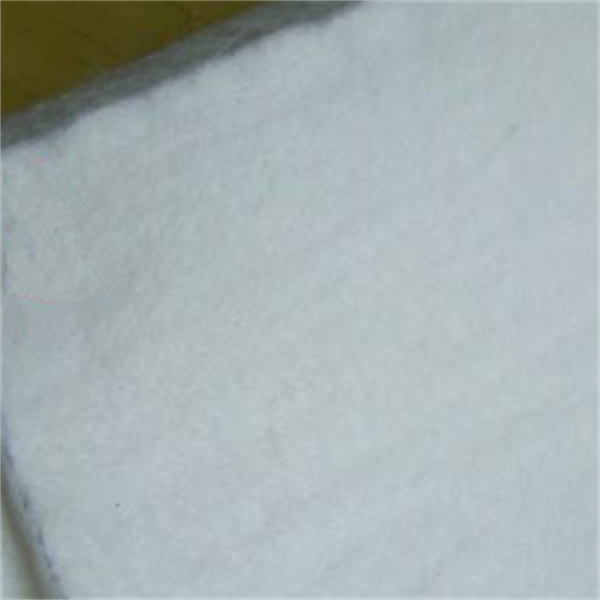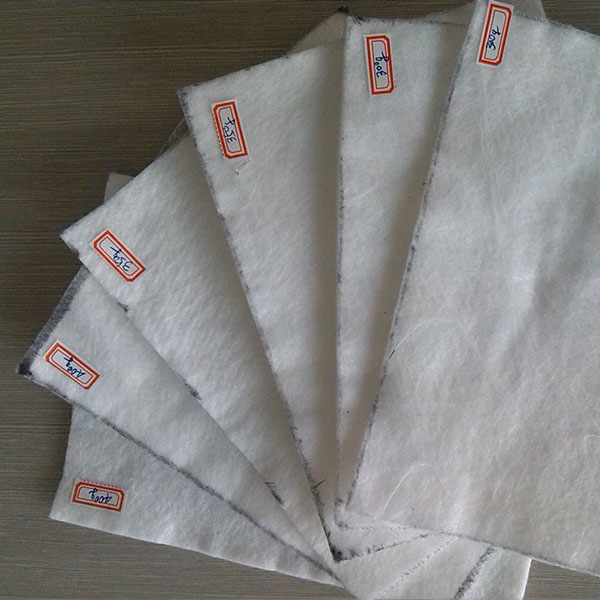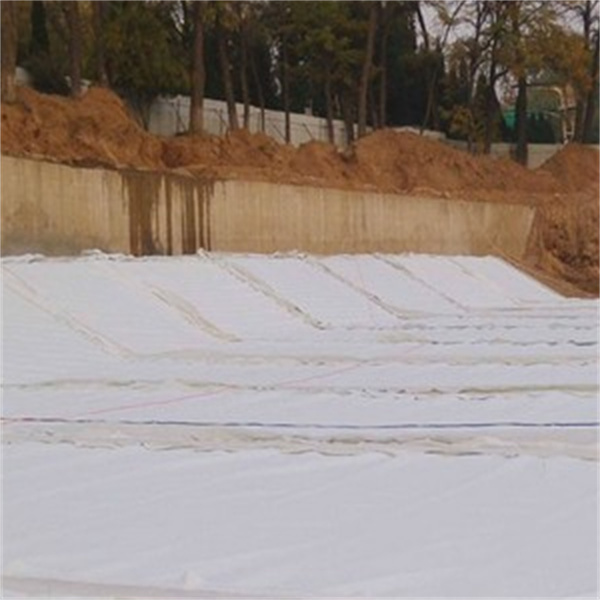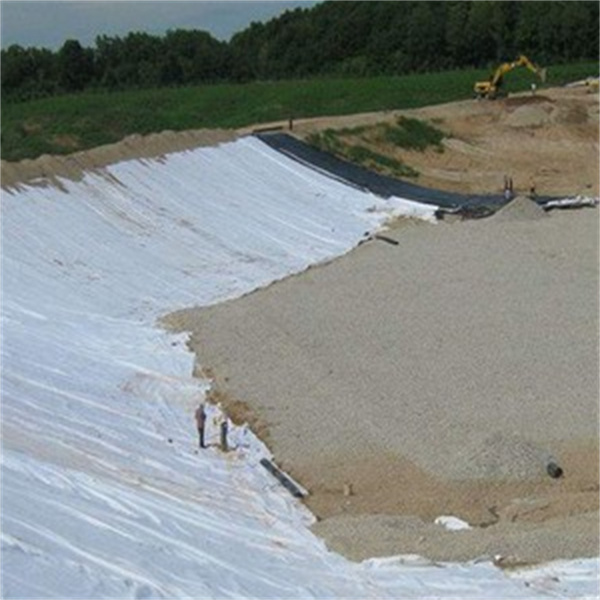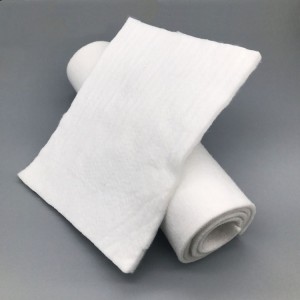Polyester Filament Non Woven Geotextile For Road Landfill Dam Building Highway Project
Product Features
| 1, Filtration |
| when water passes from a fine-grained to a coarse grained layer, Non-woven Geotextiles can retain fine particles well. Such as when water flows from a sandy soil into a Geotextile wrapped gravel drain. |
| 2, Separation |
| to separate two layers of soil with different physical properties, such as the separation of road gravel from soft sub-base materials. |
| 3, Drainage |
| to drain liquid or gas from the plane of the fabric, which leads to draining or venting of the soil, such as the gas vent layer in a landfill cap. |
| 4, Reinforcement |
| to improve the load bearing capacity of a specific soil structure, such as the reinforcement of a retaining wall.5. protectiveWhen the water flows to the soil, will concentrate the stress diffusion effectively, the transmission or the decomposition, prevents the soil to receive the external force action but the destruction, its protection soil.
6. Resistance to puncture Combined with geomembrane, the composite waterproof and impermeable material plays a role in preventing puncture. High tensile strength, good permeability, air permeability, high temperature resistance, anti - freezing, anti - aging, corrosion resistance, non - moth. needle-punched non woven geotextile is a geosynthetic material widely used. Widely used in railway subgrade reinforcement, road surface Maintenance, sports hall, embankment protection, hydraulic construction isolation, tunnel, coastal beach, reclamation, environmental protection and other projects
|
Product Parameters
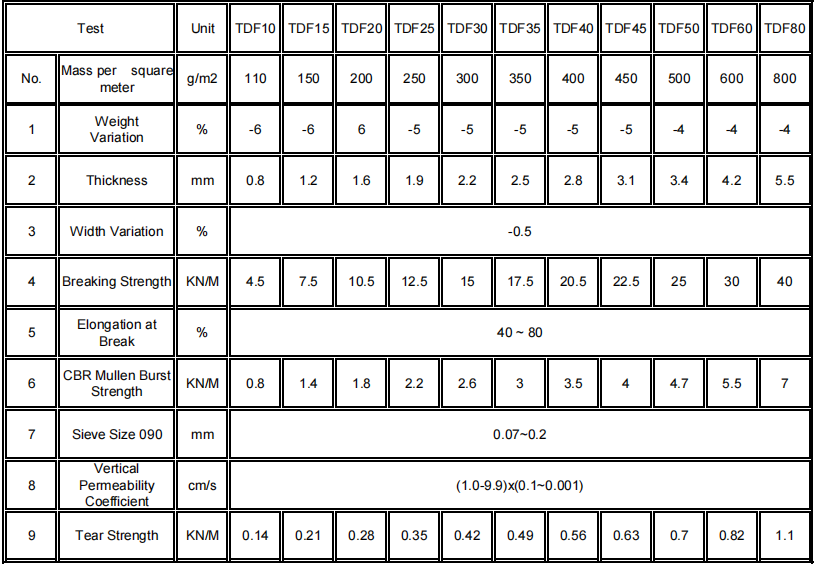
Application and After-Sales Service
(1) To reinforce the backfill of retaining wall or to anchor the face plate of retaining wall. Build wrapped retaining walls or abutments.
(2) Reinforcing flexible pavement, repairing cracks on the road and preventing reflective cracks on the road surface.
(3) Increase the stability of gravel slope and reinforced soil to prevent soil erosion and freezing damage at low temperature.
(4) The isolation layer between ballast and roadbed or between roadbed and soft ground.
(5) The isolation layer between artificial fill, rockfill or material field and foundation, the isolation, filtration and reinforcement between different frozen soil layers.
(6) The filter layer of the upper reaches of the initial ash storage dam or tailings dam, and the filter layer of the drainage system in the backfill of the retaining wall.
(7) The filter layer around the drainage pipe or gravel drainage ditch.
(8) The filters of water wells, relief wells or oblique pressure pipes in hydraulic engineering.
(9) Geotextile isolation layer between highway, airport, railway slag and artificial rockfill and foundation.
(10) Vertical or horizontal drainage within the earth dam, buried in the soil to dissipate the pore water pressure.
(11) Drainage behind impervious geomembrane or under concrete cover in earth dams or embankments.
Construction Laying
Filament Non woven Geotextile installation :
1, with manual rolling install, filament non woven geotextile surface need to be level off, and appropriate deformation allowance.
2. The installation of Filament Non woven Geotextile or short fiber non woven geotextile usually adopts several methods of lap joint, suture and welding. The width of suture and welding is generally more than 0.1m, and the lap width is generally more than 0.2m.Geotextiles that may be exposed for a long time should be welded or sewn together.
3. Geotextile suture:
All stitches must be continuous (for example, point stitches are not allowed). Filament Non woven Geotextile must overlap at least 150mm before overlap. The minimum stitch distance from the edge (the exposed edge of the material) should be at least 25mm.
The Filament Non woven Geotextile joints that have been sewn most include 1 line of cable locking chain stitch method. The thread used for suture shall be resin material with a minimum tension of more than 60N and shall have the same or greater resistance to chemical corrosion and ultraviolet radiation as geotextile.
Any "needle leakage" on the geotextile must be re-sewn where it is affected.
Appropriate measures must be taken to prevent soil, particulate matter or foreign matter from entering the geotextile layer after installation.
The lap joint of cloth can be divided into natural lap joint, seam joint or welding according to the topography and use function.
4. In the construction, the HDPE geomembrane above the geotextile shall be overlapped naturally, and the HDPE geomembrane on the upper layer , the filament non woven geotextile shall be seamed or welded by hot air. Hot air welding is the preferred connection method of filament geotextile, that is, the connection of two pieces of cloth with hot air gun is instantly heated at high temperature, so that part of it reaches the melting state, and immediately use a certain external force to make it firmly bonded together. In wet (rain and snow) weather can not be hot adhesion connection, geotextile should adopt another method a suture connection method, that is, special sewing machine for double suture connection, and the use of anti-chemical ultraviolet suture line.
The minimum width at suture is 10cm, the minimum width at natural lap is 20cm, and the minimum width at hot air welding is 20cm.
5. For seam joints, the same quality as geotextile should be used, and the suture line should be made of materials with stronger resistance to chemical damage and ultraviolet irradiation.
6. Geomembrane shall be laid after the geotextile laying and approved by the on-site supervision engineer.
Basic requirements for Filament Non woven Geotextile laying:
1. The joint shall intersect the slope line; Where there is balance or potential stress with the foot of the slope, the horizontal joint distance shall be greater than 1.5m.
2. On the slope, anchor one end of Filament Non woven Geotextile, and then lay down the roll material on the slope to ensure that the geotextile stays tight.
3. All Filament Non woven Geotextile shall be pressed down with sandbags, which shall be used during the laying period and retained to the upper layer of materials.
